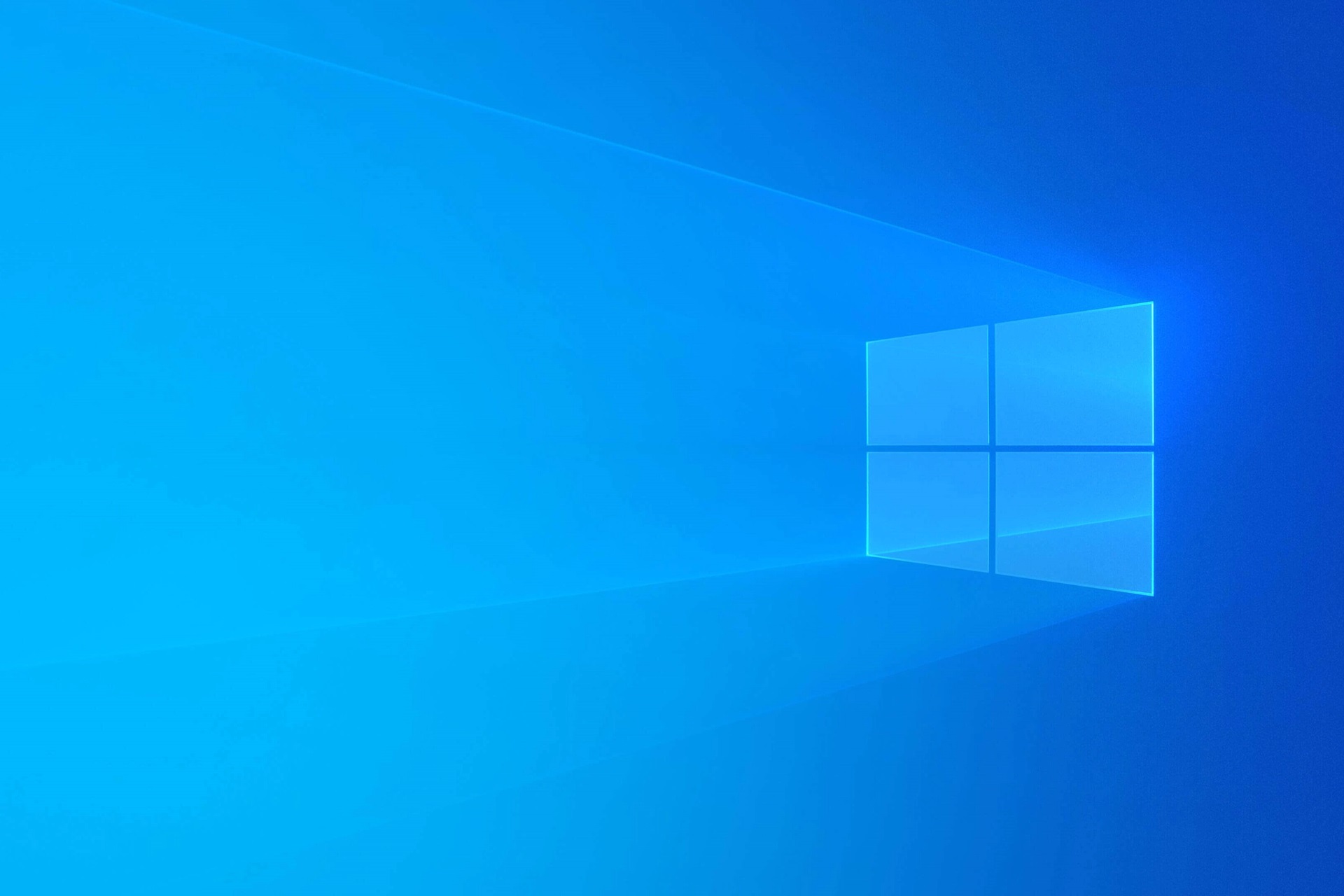Have my second pc on running Linux mint for about half a year now and it’s been a pleasure so far.
I think I’ll be prepared to switch over fully in a year.
So fucking refuse to switch over to 11
I only have one computer that can run 11 because of the TPM module, it upgraded by accident.
All others will run linux
Pretty telling when the only way you can get your users to “upgrade” is by stealth. I wonder what the % of involuntarily upgraded win11 users is vs people who knowingly and willingly did so.
I would’ve upgraded to 11, but either my computer doesn’t support TPM or I just refused to turn it on. So instead I upgraded to Ubuntu. There are probably better distros but I had a limited about of time to fuck around trying them.
Mint is pretty nice, too. It felt familiar, as a windows user. But I kept installing stuff that broke the updater. So I switched and found it’s me, not the updater, and I just need to do
apt update/upgradeanddpkg -iregardless, but anyway now I’m on Ubuntu.I still have my full windows install on an SSD somewhere if I had an emergency, but I haven’t had any such emergency in about a year.
The one that runs W11 can still be upgraded to Linux. Keep the W11 partition and run W11 in an emulator inside Linux when you really need it - which should be less and less the more you’re familiar with Linux.
Similar to yourself, I switched to Mint about 9 months ago - initially on dual boot before ditching Windows altogether (the Windows updates kept fucking everything up). For the one piece of software that I missed on Windows 10 (Fugawi Digital Maps) I simply created a Windows 7 VM, that doesn’t connect to the internet, and installed it on there. In fact, it has made me realise just how crap 10 was in comparison to 7. Linux has been a pleasure. Not only has it made computers interesting to me again, but I’ve learned a shitload along the way. It’s nice to have a computer do what I want it to, rather than the other way around.
What do you use to run the VM? I run Mint and have been meaning to get a Windows VM up but there are too many options
VirtualBox for me
virt-manager
Thanks, I ended up going with virt-manager and it was relatively easy
VirtualBox.
I’m using Linux mint all day at work, while I have a couple of rarely-used Windows machines at home. I think the swap to Linux on those home machines is going to be a winter project this year.
It might be more accurate to say the project will be setting up the Linux version of a few key pieces of software. The actual installation of Linux Mint is the easiest part!
All of the random BS it requires is a bit of a turn off but the 10ish percent drop in gaming performance is a no go. Linux with proton should outperform the os the games are designed to run on but here we are.
deleted by creator
deleted by creator
Me too, but im betting windows 10 gets an extension. Microsoft will take too much flack ending support while so many people are still on 10 and too many computers that can’t upgrade are still in use. They’re going for a scare tactic to try and fluff up 11’s numbers a bit before doing it is my guess. 62% of computers are still on 10 right now. They won’t end support.
Recently decided to try Linux for gaming. It wasn’t without a hitch or two, but largely fine. A number of games I play don’t even need an emulation tool like Proton.
The only reason windows was lying around was for gaming.
Looks like it’ll only get used for flight simulation.
Haven’t. Will check it out! Thanks.
Not a lot of updates in 2024 unfortunately. Is it dead?
It is not. It is open source, there will be updates when there will be updates, they are not pressured by board of directors to release something that doesn’t work.
I suggest checking the discord for more information, including endless stream of screenshots, to get an idea about state of the project.
I have edited the comment above to add link
https://sourceforge.net/p/flightgear/flightgear/ci/next/tree/
This random git repo I picked from their source forge page seems to have some pretty recent commits. I’m guessing they just have a slow release cycle.
X-plane natively supports Linux, works using proton too.
I’d stoped flying x plane when MSFS came out. Will give it a whirl too.
Same here but for sim racing
Barring Gamefreaks games, most of the popular racing games do not support Linux well. Forza 4/5, Asseto Corsa, iRacing, Crew.
Why do you need Windows for sim racing?
Peripherals. AFAIK Fanatec gear doesn’t run on Linux yet.
There are some drivers: https://jugandoenlinux.com/tutoriales/volantes.html
Thanks for this. I’m kinda concerned about attempting this on my current machine. I’ve got it set up as a music studio PC with Steam as a secondary feature. It works great with all my recording peripherals so I’m hesitant to introduce additional complexity to it with these drivers. I’d like to move away from Win entirely but its not exactly a do or die situation for me right now.
My linux install is on its own SDD separate from Win. I only use WIN for simracing and counter-strike so that use case is very limited. Also I don’t think iRacing’s anti-cheat runs on Linux yet? I’ll have to investigate.
As far as I know, iRacing isn’t working on Linux properly. I tried ACC and rFactor 2. But you’d better ask here: https://matrix.to/#/#simracer:matrix.org
Wine Is Not an Emulator
(Proton is wine)
Proton uses Wine along with many other technologies
Yes, it’s also not an emulator.
Summary: M$ hates their users more than ever.
I don’t think they think about the user at all.
They want that telemetry/ad money baby!
the enshitification will continue until profits improve
It’s only enshitification for us.
This is going to have a much bigger impact on the third would countries.
Most people here are not going to buy a new computer there are tons of people who buy second hand laptops that are old to be able to afford them.
Additionally people are not tech savvy and don’t understand the implication of this. When they see an ad that says to buy a new computer, they are going to dismiss it the same way they dismiss all the other ads online telling them to buy stuff.
Can’t wait! Cheap linux laptops are abound!
7th gen Intel laptops with GPUs are already really cheap
If I were to buy used laptop, I’d want 8th gen or newer because that’s where intel finally made more than dual core for mobile.
I literally daily drive a laptop with a 4c/8t processor (6700-HQ) so I’m not sure what you’re talking about other than perhaps the lower end i5s
Edit to add, my other laptop with a third gen i5 is 2C/4T and getting pretty long in the tooth though, so I wouldn’t go out of my way for something that old though
I mean mainstream processors of that age. Even regular i7s of 7th gen were just dual cores with HT.
I was very confused by your comment so I took a poke around Intel ark. I see what you mean now, most mobile processors for 4th and 6th gen (probably the most common generations for used PCs that are incompatible with 11) have 2c/4t on the U series processors, but looks like any HQ processor gets a full 4 cores and if it’s an i7 it gets hyper threading, putting them closer to parity with their desktop counterparts
Yep, I meant U series, which (at least where I live) were covering vast majority of the market. There was occasional HQ here and there, but not that often. AMDs offerings at the time were mediocre and nobody really used them so for me, that era basically overlaps with Intel U series hegemony when speaking about laptop cpus.
Yeah I hadn’t realized how much laptops from that era sucked compared to now. Granted, that was around the time manufacturers actually started actually trying to make laptops better, but really only current laptops feel similar to desktops and even then because they’re just designed to “race to sleep” any kind of workload that actually pushes them for more than 15 seconds at all it falls over so quickly compared to a moderate desktop.
Desktops with 4th gen and newer chips however have so much life left in them, so it’s an absolute crime that Microsoft’s sending them to the metalchipper
Unfortunately when there’s 11 will install on an 8th as long as it has a TPM.
Ah, so there won’t be overflow of big bussiness 8th gen laptops… Nevermind, I’d still avoid 7th gen myself.
11 losses support for 7th gen or earlier and non-TPM enabled equipment.
You might still be able to find something newer that lacks TPM.
Alternatively, we don’t really know why they chose 7th gen as the cutoff for sure. It is quite possible that they’re just going by Intel’s own support structure. Until dropped support for 7th gen due to an age out scenario so it’s absolutely possible that in another couple of years still drop support for 8th gen.
Prices of Windows 11 incompatible hardware have been dropping like a rock all year as companies upgrade their fleets, and it’ll get far more pronounced once consumers start getting squeezed to upgrade to continue using software XYZ
My biggest worry for this is, there’s probably dozens of black hats out there that have found some very large exploit for Windows 10, and are holding off on abusing it until the day Microsoft ends support.
Currently, my plan is to make a partition for Linux Mint, set up dual boot, see how much of my daily computer obsession I can execute through there, and then try to slowly transition while slowly moving stuff from Windows. (I am vaguely worried I’ll run into that Windows issue where files accessed from outside the OS login are security-restricted. That has even screwed up my Windows reformat fixes)
might be better to separate drives, windows has been known to fuck up Linux partitions recently.
Just keep regular full system images (as you should be anyways, as part of your 3-2-1 backup plan), and you’ll be fine as you can just restore an image if everything gets broken.
My what now?
This sounds like something I should be wary of, but it’s the first I’m hearing of it. Any other info?
It typically happens during updates. People have reported their grub screwing up. If you’re able I would honestly suggest separate drives
I haven’t booted into Windows since
Microsoft took a big bite out of GRUB, which is the utility that your motherboard uses to dual boot OSes. A Windows update basically borked it and set Windows as the mandatory default OS. It basically makes it so your motherboard can’t properly identify your Linux install(s).
Luckily, you can fix it directly in Windows Command Prompt. But still, it’s a dirty trick that Microsoft has been using recently. Windows has historically been a bad neighbor for other OSes, (for instance, the Secure Boot Module is basically an attempt to make booting other OSes difficult,) but this was the first time in recent history that they have outright prevented another existing OS from booting.
only anecdotes unfortunately.
True once the day comes you can possibly do a raid config
NTFS file reading and writing is reasonably well supported under Linux, though exFAT or native filesystems are preferable. Actually finding software that will understand your files is one level removed, and getting equivalent or even the same software running is another level still. e.g. reading MS Office documents - LibreOffice is pretty good at that. For games, Steam and Proton have a lot of that covered.
If all you do is on websites, most if not all of the usual web browsers are available and work indistinguishably.
That said, I will leave you with these three words: Backups. Backups. Backups.
I’m not worried about interpreting the NTFS filesystem or individual files of given formats. Mainly, I’m worried about a Windows security-level problem I’ve had where Windows restricts access to whole directories based on user-level permissions, since the old “user” that owned them on a given operating system has been obliterated. It’s an issue I’ve had even when reinstalling Windows to the same computer.
As far as I know, Linux ignores NTFS permissions when given raw access to a disk, or rather, acts as thought it’s SYSTEM or some other high-level user, working around anything Windows might have set.
Worst case, you could still move your important files to an exFAT partition (or into an archive) where permissions don’t apply.
As far as I know, Linux ignores NTFS permissions when given raw access to a disk, or rather, acts as thought it’s SYSTEM or some other high-level user, working around anything Windows might have set.
I think that was the case for ntfs-3g.
I’m not certain that’s the case anymore with the new kernel NTFS driver, though I havent tested it. If it isn’t, it should be correctly handling the file premissions.
LMDE6 still uses ntfs-3g as far as I can tell, so I’m going to assume that regular Mint does too.
lsmodreports nothing like ntfs, and the tried and tested, if no longer developed, ntfs-3g suite is installed.Things might change as and when the kernel driver is more stable for writing. I’m sure more bleeding-edge distros are already running the kernel driver, but then, those who run those distros are deep into Linux and NTFS is not really something they deal with regularly.
I believe it actually is used in regular Mint (the Debian kernel doesn’t include it, but it looks like Ubuntu’s and Mint’s do). But yes, I suppose it is still in the process of being adopted by various distributions.
Mint’s sweet I switched from 10 a few months back. Biggest difference is getting use to the different file system, only 2 games have been unplayable (didn’t try to make them work tbh).
PR nightmares will keep significant exploit fixes coming. Microsoft isn’t that stupid.
Frankly, I don’t care.
I’m going to keep using Windows 10, updates or not, until I absolutely have no other choice, hoping against hope that the cracks in the Recall/AI monolith with have spread wide enough that a future Win 12 or 13 won’t have them in it. I don’t run a business. I don’t keep sensitive information on any internet capable devices and my work uses the AS400 system.
I know Linux is a thing, and about a dozen years ago I spent a year using Ubuntu exclusively. While appreciating the OS, I got tired of chanting magic spells at computer every time I wanted to use software I liked on it, and so went back to Windows.
These days, despite being a reasonably tech savvy person approaching 60, I’m getting to the point where I’m just not up to learning/relearning an OS unless there is a critical need, and using Windows 10 there just isn’t. At least not for me.
The days of “chanting magic spells at computer” being synonymous with the Linux experience are far gone. I recommend you just make a Fedora installer and take it for a spin on the live test system! You don’t need to commit to it to just try it
[Children of the Omnissiah plays]
Some questions:
What version of Linux does Fedora install? Is it directly compatible with Windows software such as games and OBS, or does it require modifications/compatibility installations such as WINE? Does it have documented support online or is it a matter of haunting forums and such for when problems occur? And no matter how solid an OS is, I will tend to break it, generally by doing stupid shit, but I will break it. Before putting it back together. Which is generally how I tend to learn software.
If you are going to play games you might as well go and try Bazzite instead! It’s built on a Fedora base with some good additions:
-
It’s atomic: this basically means that everytime yov boot your computer you’ll have the choice of booting onto the newest version of your system, or the one before. If you fuck up anything it’s as easy as reverting to the last version where things were alright!
-
It comes with a bunch of preloaded drivers and compatibility layers: makes compatibility with modern games and software as good as you can get it without having to tinker heaps. It’s pretty seamless.
-
The installer includes many programs by default. Just tick a few boxes and you can choose to have Spotify, OBS, Discord or Darktable automatically installed in your computer
As for the documented support you can probably go a long way with the Arch, Gentoo and Fedora wikis. Other than that I’m afraid it’s gonna be relying on forums and Reddit. I’ve never irreversably broken my Fedora system for what is worth, and I don’t consider myself that tech savvy!
Game support is also really good these days. Anything that you can play via Steam will basically run. And performance is better for some games on Linux these days! Itch.io also has good support I think. You should be able to run most things that don’t use shady anti-cheat, but forget about League of Legends, Valorant or Fortnite.
I’m not sure what you mean by Linux version! But Fedora (and Bazzite) belong to their own “branch” of Linux, apart from Debian and Arch. Their philosophy is a balance between rock-solid stability (Debian) vs bleeding-edge software (Arch) that many people, including me, think hits the sweet spot quite well!
If there’s anything I missed or you are curious feel free to ask more questions :)
-
What version of Linux does Fedora install?
Whatever resides in its repositories for the specific release of Fedora. What exactly do you need the specific version for? I’m sorry, but this question sounds as if you were trying to imitate some kind of savvyness.
Is it directly compatible with Windows software such as games and OBS,
Linux doesn’t present Windows NT ABI, if that is your question. It’s a different operating system, and it would be a very weird expectation of it to do that.
or does it require modifications/compatibility installations such as WINE?
Wine is a userland implementation of Windows subsystem for NT, only for Unix-likes.
So yes, if you want to run Windows applications, you are going to use Wine.
Does it have documented support online or is it a matter of haunting forums and such for when problems occur?
Good documentation is present, unlike with Windows. Haunting forums is generally not our way of doing things. However, that will yield better results than Windows, too.
And no matter how solid an OS is, I will tend to break it, generally by doing stupid shit, but I will break it. Before putting it back together. Which is generally how I tend to learn software.
I’m not sure you’re an adult. I’m also not sure you’ve written a single line of code in your life.
I’m 58, and the only “code” I’ve ever written is hexadecimal for the Apple ][+ we had back in high school. Which isn’t even remotely close to what actual code is. Thanks for the attempt at insult, but it’s my reality, so fuck you too.
It wasn’t an attempt at an insult. It was an attempt to inform you that the whole comment seemed strange.
That kind of pretense is even more stupid when
and the only “code” I’ve ever written is hexadecimal for the Apple ][+ we had back in high school
it turns out you’ve seen some parts of real computing many people haven’t.
Also sorry for making you feel whatever way, my comment was basically intended to prevent more of that in future.
So, about using it - the advice would be to try something convenient in dualboot (shrink the NTFS, shrink the partition it’s on, install Linux on the freed up space) and see for yourself.
What version of Linux does Fedora install?
As of this writing, My install of Fedora Linux 40 KDE is running Linux kernel version 6.10.11.
If that’s not what you were asking, Fedora is the distro. It’s a fork of Red Hat, uses the rpm package format, they offer the GNOME desktop by default (the “Workstation” flavor) but several other popular UIs are available.
Is it directly compatible with Windows software such as games and OBS, or does it require modifications/compatibility installations such as WINE?
Linux is not directly compatible with Windows software. Either the developer/publisher of the software must ship a Linux version or a compatibility layer such as WINE muse be used. If you play games on Steam, Steam will pretty much just handle that. There is a setting in Steam’s settings called Enable Steam Play for all other titles which at this point is the “just work” button.
OBS is open source and widely available on Linux. I just now installed it from Fedora’s package manager.
Does it have documented support online or is it a matter of haunting forums and such for when problems occur?
It’s documented and supported a hell of a lot better than Windows is. I don’t know how people use that puddle of shit. I was converting a computer from an HDD + Dell Optane to a regular SSD. Apparently I didn’t quite have the BIOS set up right for this so it gave me an “Install error 0xd2c77e2939a44aa7b5” Which I guess you’re expected to write down on a piece of paper by hand because the Windows installer runs in an incomplete and useless environment. Trying to install Linux on this same machine, I got an error which said “Such and such BIOS setting is probably wrong. You can read more abut it here” and gave a hyperlink to a wiki, which was clickable because this was running in the full desktop LIVE environment, and it also included a QR code link to the same article so you could easily pull it up on a mobile device.
That said a lot of your “hey I’m having this weird issue” is going to take you to the distro’s forums or to Reddit. As if that’s not where most Windows tech support comes from anyway, Microsoft doesn’t answer any questions.
And no matter how solid an OS is, I will tend to break it, generally by doing stupid shit, but I will break it. Before putting it back together. Which is generally how I tend to learn software.
You’ll fit right in here. I once borked a Linux Mint install by uninstalling Python. A LOT of shit broke including the package manager, I couldn’t get Python reinstalled. That was a reinstall of the OS, thankfully I had /home on a separate partition so I could just install the OS around it without touching that and I didn’t even have to restore a backup. That kind of mistake tends not to be the “I just ruined my life” moment that borking Windows is because Linux is faster and easier to install. I’ve never killed a Linux install doing anything “normal” aka what you’d expect to do if you were used to Windows. All except once I was doing goofy things with the system files, and that once I was building a circuit on a Raspberry Pi while it was running, a jumper wire got away from me and touched something on the board and it froze. Had to power cycle it. Probably don’t let random wires touch your motherboard while the computer is running. That’s a Top Gear Top Tip.
I upgraded to 11 and honestly it’s about the same. Very familiar and fast. I’ve had no problems with it in the 3 years I’ve been using it. If I had the preference I’d use 10 but only by a very slim margin as they are virtually identical in day to day usage. I do think it’s faster.
Despite what the fanboys say, linux still isn’t completely ready for primetime. I’ve been a casual linux user for twenty-odd years, and it has come a LONG way from assembling Lego bricks into a usable OS to a mostly plug-‘n-play setup.
There’s plenty of stuff that doesn’t work. Compared to Windows the software isn’t all available. Sound and video can still present difficulties. I moved my Steam library to linux and many of the games work well, but forget it if you’re into AAA online play, anti-cheat software still doesn’t play nice on linux.
Don’t get me wrong, it’s a much more polished and easy to use setup than it’s ever been. But it still doesn’t beat Windows for the amount of mainstream software available and still needs to be irritatingly fiddled with if you want to do anything off the beaten path with it.
What’s the “plenty of stuff that doesn’t work”? And what audio/video issues are you having? Pipewire is miles better than anything Windows can conjure up in latency, quality, and customization. Video is literally just rendering pixels, which works with web browsers, and local video players (mpv and vlc). The only valid complaint is [Windows] software availability.
Pipewire is miles better than anything Windows can conjure up in latency, quality, and customization
For my own curiousity, is this a recent thing? When I was researching before making the jump to linux, it was implied that audio on linux wasn’t in the best state comparative to windows.
Technically it has been a thing since like 2015, but Pipewire 1.0 was only released 10 months ago , even though many distributions were already using it by default since 2021 (Fedora) and 2022 (Ubuntu, Pop! OS), given how much of an improvement it was over pulseaudio.
Ah, its very possible I was seeing some years old info then. Thanks!
Audio cracking and popping, sound not working at all, flickering at certain resolutions, not rendering faces properly, some software won’t load at all, some linux apps don’t work correctly, USB ports not working, wireless dongles not working, etc. I’m not going to bore anyone with the full list. I mean, I can tell you’re waiting to pin the blame on me or say something along the lines of “all you have to do is…” and that’s really disingenuous. Either Linux “just works” or it doesn’t. And even as a fan and long-time user…it doesn’t. Not like Windows, anyway.
Not trying to blame you or anything, just stating the facts. It does sound like you don’t want to hear the other side though, and are completely convinced that these issues you’re having are normal to the average Linux system.
Installing a recent version of a normal Linux distribution (Debian, Ubuntu, Fedora, Mint) will come by default with the following: Pipewire server (most likely wireplumber), Wayland, network drivers (except Debian) for most adapters, stable graphics drivers (unless you’re an NVIDIA victim), a DE of your choice (KDE, GNOME, Cosmic, etc). This setup will not have any audio cracking or popping, no flickering at certain resolutions, working USB ports. However, if you’re the type who refuses to update from the unmaintainable Xorg, old pulseaudio/alsa drivers, uses some obscure distribution, uses an NVIDIA GPU, or uses hardware from 2 decades ago, then you’ll have a horrible experience and it will only get worse with time, not better (unless you have an NVIDIA GPU, which will get not-garbage drivers eventually).
What’s there to hear? I already said I’ve been a linux user for 20 years, so it’s not like you’re going to convince me to change or tell me something I don’t already know, yet here you are trying to sell me a product I already use without acknowledging any of the issues that can happen with Linux…and there you go accusing me of some kind of user failing when I already stated I downloaded a current popular distro to get thing working. Why should I have to explain my regular upgrades and updates? I really don’t have time to listen to soft accusations after I stated real issues with the OS. If you’re happy with linux, great, but don’t shove your rose tinted glasses on everyone else’s face.
I’m going to keep using Windows 10
Me too. I will be glad to get no updates and not have to worry any more that Microsoft is going to ruin my computer.
A better use case for linux desktop could not have been invented.
Thought about it… but drivers are hell…
You just download them, like with windows?
If you’ve never downloaded drivers manually it’s super easy these days. You’ll get a tool from the device manufacturer that checks your hardware and system and automatically installs the correct driver with computer restarts at the correct places. You just press the go button.
That said most default drivers are open source and included in Linux, so you should be able to get by without downloading anything unless you need the latest manufacturer driver.
I never had to download drivers on linux but most manufacture driver install softwares are always for Windows. Except for like AMD
That’s definitely an issue. I checked my printer today and it has Linux drivers ready to go. And everything else is ASUS/AMD/Corsair. And I really don’t care if the RGB in my mechanical keyboard works.
Does that count also for graphic cards?
AMD for sure, with NVIDIA your mileage may vary. I’d go check their site but I’d be very surprised if they were behind the times on driver update tools. The drivers can make a huge difference in games so usually they’re on top of that.
So heres the Thing. My graphic card is from AMD
This is AMDs page. Honestly I have more faith in AMD than NVIDIA these days.
Hm. Gonna dig a bit into that
You’ll not have to download anything then, AMD drivers are baked in. You’ll literally be able to boot your OS for the first time, install a game and it’ll get full performance off the bat
Old hardware is usually very well supported.
Just don’t recommend Linux people with Nvidia hybrid graphics, though.
I have an old Steam Machine (Asus GR6) with Optimus graphics and it worked well enough. It’s been relegated to home server role for many years now but even then it wasn’t so bad to set up.
Exactly the issue I had on my laptop. Plug in an external display to extend the desktop and the laptop screen turns off. Wasted 6 hours of my life trying to get the damn thing to work properly until I gave up.
Only 6 hours
I’ve been changing colors and and textures in my desktop for longer spans of time
And playing CK2
Still, those are at least pleasant.
Are they?
Nope I haven’t had trouble with drivers in a while. Printers are still probably thr worst but not bad.
Just buy a brother laser printer with a USB port.
That’s what I have, except networked. . Works fine. Just meant out of all the things, printers are still the hardest
Can confirm. Works on every distro I’ve tried.
These days IPP Print Everywhere support makes driverless printing easy
15 years ago it was a nightmare with WiFi card drivers, these days I haven’t had a single issue.
You usually don’t need to download drivers in Linux, unless you want to use some really special hardware
I’ve been using Linux at home for a decade now and have never needed to install a driver.
I have installed Linux on a dozen computers from crummy laptops to custom build with graphics card. Most went fine. For the graphics card one, I installed popos to avoid learning about internals , but I could have spent time to solve it, I was lazy.
But I recommend having several distros on usb to do tests . That way things are easiest. Some installs have default settings that work best for random computers. So just spend a few minutes on each to test sound, WiFi and graphics. 5 minutes on each to test 10 flavors
No need to mess with any text settings at all these days… I mean, you can
Not to dog pile, but unless it’s some niche hardware drivers are the last thing that springs to mind on my Linux boxes.
I will say the Linux volunteers have a slight blind spot for creative workflows.
Linux has drivers baked in to the kernel or is a dependency smth doesn’t work try another distro or install nvidia non free driver
They havent been since 10 years ago. Nvidia excempted.
Oh, look, a post on Lemmy about Windows. I’m excited to engage in a unique, nuanced discussion about the topic of the post!
So glad I’m not on Reddit where people just repeat the same predictable thing over and over then jerk each other off.
(I use Linux too. But I hate seeing copy+paste Linux shilling on every Windows post. It’s preaching to the choir and uninspired.)
To be fair, you have to have a very high IQ to understand Linux. The operating system is extremely nuanced, and without a solid grasp of command-line interfaces and system architecture, most of the concepts will go over a typical user’s head. There’s also the community’s open-source philosophy, which is intricately woven into its development—its principles draw heavily from the ideals of free software and collaborative coding. The true enthusiasts grasp this stuff; they have the intellectual capacity to appreciate the depths of these systems, to realize that they’re not just functional—they represent a radical shift in computing. As a consequence, people who dislike Linux truly ARE uninformed; of course, they wouldn’t appreciate, for instance, the brilliance behind commands like “sudo,” which itself is a profound commentary on user permissions and control. I’m smirking right now just imagining those confused novices scratching their heads in bewilderment as the power of the terminal unfolds before them. What fools… how I pity them. And yes, by the way, I DO have a Linux tattoo. And no, you cannot see it. It’s for the tech-savvy eyes only—and even they have to demonstrate that they’re within 5 IQ points of my own (preferably lower) beforehand.
Quick question, was that an existing copypasta or did you come up with it
It’s the Rick and Morty copy pasta reworked for Linux.
To be fair, you have to have a very high IQ to understand Linux.
Not necessarily. ChromeOS is Linux, and is easier to learn/use than Windows is.
The true enthusiasts grasp this stuff; they have the intellectual capacity to appreciate the depths of these systems, to realize that they’re not just functional—they represent a radical shift in computing.
Unix (which Linux is based on) is 50 years old. I agree that Unix/Linux is vastly superior to Windows though.
You know what I wrote was a copyPasta shit post right?
It’s all part of the authentic lemmy experience.
You don’t like people fervently ignore it the article and just broken recording “install Linux” and “Linux is so much better than it used to be”?
Cool. I use Linux for something and windows for others and Mac for others!
How and why do you have 3 operating systems. Across how many platforms?
Software engineering work.
Mac for code and other work tasks
Windows for personal use during work
Linux for hosted applications and side projects.
Oh OK. Makes sense. Hosted applications and side projects is like programming stuff? For non programmers do you use your Linux for anything else?
Wtf is this a reasonable comment to discuss a nuanced topic where a person who never used Linux and has no desire to can maybe find options to adjust and keep my windows from enshittifying?
Inb4 get linux
I get it. I just don’t want to learn a new operating system. And to make it work for most of what I use my computer for.
What did you learn about Windows that makes your knowledge about it so in depth that you can’t separate from it any longer?
Besides using it since Windows 95, I’ve done everything on it. Warez, making shady software work, learning the ins and outs to keep it my way.
I thought about switching since I’ve dabbled in dual boot before, but I just f don’t want to be restarting my computer to keep switching between OS when one can do all I want with some baggage, and the other can do less without it.
Mainly for me it’s compatibility. Discord, MW3, networking between my main PC and HTPC. Online gaming with friends. Full steam support.
It just works. Switching to Linux, finding a distro that will encompass what I do, running into problems, having to fix them, or worst case scenario finding out that I can’t do the thing (mw3 or any game that has denuvo) without having to switch back to windows anyways in a dual boot I just don’t see why having Linux to do anything that I’m already doing on windows is worth it. Why have dual boot. Removing the annoying windows baggage is just not enough for me to switch.
I just now switched from chrome to Firefox because they finally implemented the removal of anti ad extensions. It was an easy switch. The UI is a little different. But I hate nothing more than ads. Despise them. And paying to remove them isn’t an option because it means I’m giving into the hostage situation.
If windows becomes unmanageable, I can’t find ANY software to remove ads, even remove windows features that I can’t live with, then I’ll consider sacrificing the few things I can’t do on Linux and move to Linux.
I just feel like a fool for buying win10 and then upgrading to the Pro license a couple years back for something like $300 in total, only to keep getting completely irrelevant ads shoved down my throat. Buy Xbox game pass (never cared about it), MS365 subscription (I already had it, why do I get ads for it?), One Drive (I already had this as well), etc. And I’ve been with MS since DOS days and then the whole shebang as well. It’s just unacceptable to me.
I’ve also been dragging along data from one old hdd to the next as I kept upgrading, with some files still being retained from the 90s. I have a lot of demo scene material and what not, and one day when exploring the directories, I’ve noticed that a lot of them had now missing executables. Defender removed them without as much as a warning. Rummaging through some other directories, I’ve noticed that some of my late father’s files are gone from his personal directory (from when we shared my PC on occasion). It included some silly stuff like the Terrorists’ Handbook. But wait, there’s more.
Mainly for me it’s compatibility. Discord, MW3, networking between my main PC and HTPC. Online gaming with friends. Full steam support.
These just work under Linux perfectly fine. Except for maybe MW3. The fotm shooter sponsored by the genocidal US army. But not sure what you even mean by full Steam support. Steam IS Linux. And I’m using Datcord instead of Discord, to avoid electronJS (Chromium).
I’ve only switched end of August, after trialing another distro on a laptop during the summer to see if I can do studies and work stuff on it (no gaming). Everything worked there out of box. Once I had axed my C$300 copy of windows from my main PC (lol sunk cost fallacy) my distro of choice took a bit more time to set up, but I haven’t had this much fun with tinkering on something since the 90s. And if something doesn’t want to work right away, the answer is usually one search or LLM prompt away. I understand now why “man” is not even included in a lot of distros by default nowadays.
Oh. Maybe I shouldn’t share this but I never paid for a windows product. Even office when it went to 360 I stopped trying to pirate earlier versions and just switched to free open source office tools.
Windows 8 I think got authenticated when it went to 10 and I’ve just been riding that install. Still got my handy USB stick whenever I reinstall.
The shooter game is just a time killer for me. Dopamine memories from better times. The problem with using compatible apps is not all my friends will. Is datcord communicate directly with discord users? We already have a technologic dichotomy with half my friends on iPhone other on Android. Xbox vs Playstation vs pc gaming. It’s tough to get people on the same page.
Datcord is just a Firefox based wrapper for Discord, instead of electron (which the Discord thick client uses). But you could just use a flatpak discord probably.
Win10 LTSC still has quite a few years left.
It’s not available for individual consumers though unless you pirate it, isn’t it? (which makes it perfectly good reason to pirate it)
Pirating it is a bad idea if you’re downloading it from a non-Microsoft source, since malware would be a big risk. That would defeat the purpose of installing a supported OS in the first place. If you download it from Microsoft and use a pirated key maybe that would work, but would you get the security updates?
Are there people downloading Windows copies somewhere else than straight from Microsoft? I haven’t used Windows on my computers in 10 years but back then you installed it in trial mode and then activated / kept it activated with KMS tools.
Type “github MAS” into your favorite search engine.
Oh, how nice of Microsoft to host it!
deleted by creator
What’s the point of staying with Windows 10? You’re just pushing the problem further ahead in time. You might as well start leaning Linux now, instead of waiting til you have no other choice.
I can only speak for myself, but I have always had bad luck with Linux on desktop. Something always breaks, isn’t compatible, or requires a lengthy installation process involving compiling multiple libraries because no .deb or .rpm is available.
On servers, it’s fantastic. If you count VMs, I have far more Linux installations than Windows. In general, I use Win10 LTSC for anything that requires a GUI and Ubuntu Server for anything that only needs CLI or hosts a web interface.
Might try again. It’s come leaps and bounds in the past few years. I’ve been Linux only for the past few years after dual booting for many and the one thing I miss is game pass. Every game I’ve tried on steam or gog works — often better than on windows.
Try Pop_OS!, it just works.
The problem with Linux is fundamental, and no distro is going to solve it.
-
It’s made by devs and for devs. The reliance on the CLI is it’s death knell. It will never be usable for normies until this problem is solved but nobody wants to solve it because it’s “so great”. Even when there is a simple solution, if you search for it, the only thing you will get is CLI solutions.
-
#1 is compounded by the variety of distros. Meaning often when you do attempt those CLI fixes, they simply don’t work and return some sort of generic error with no hint as to what the actual problem is.
Things like changing the default power profile, adding fractional scaling, or changing the default audio device, all things that are super simple on any other OS, are ridiculously convoluted.
At least for me, the whole “made by devs for devs” isn’t really the major downfall. It’s the fact that it can’t be trusted to remain functional in a dynamic environment. I like using the command line, but sometimes that’s just not enough.
If I need a specific software package, I can download the source, compile it, along with the 100 of libraries that they chose not to include in the .tar.gz file, and eventually get it running.
However, when I do an “apt update” and it changes enough, then the binary I compiled earlier is going to stop working. Then I spend hours trying to recompile it along with it’s dependencies, only to find that it doesn’t support some obscure sub-version of a package that got installed along with the latest security updates.
In a static environment, where I will never change settings or install software (like my NAS), it’s perfect. On my desktop PC, I just want it to work well enough so I can tinker with other things. I don’t want to have to troubleshoot why Gnome or KDE isn’t working with my video drivers when all I want to do is launch remote desktop so I can tinker with stuff on a server that I actually want to tinker with.
This isn’t an issue anymore with flatpacks and snaps. I’ve been using Pop_OS for years now and I’ve never had to compile anything. If the deb isn’t available, or is the wrong version, there is a flatpack of the latest version. These aren’t tied to system package versions so you don’t run into dependency hell. It’s all managed through the pop shop so you never have to use the command line to install software at all.
Ironic that Windows has become the same way. New functionality is available first as a Powershell command before the GUI control is written. This is because those are two efforts. First you write the function then you need to call the function from a GUI element.
Ironic #2 is that Pop_OS comes with more settings available in the GUI than any other Linux I have used. Maybe you haven’t tried it.
To say no distro can fix is nonsense. Any distro can make new GUI elements and because it’s open source once the work is done other distros can add the same to their own menus.
Just like it has taken Microsoft over a decade to develop the new settings app, they still haven’t achieved feature parity with the control panel. This should make obvious how much hard work is required.
So the solution is that we just need to write more GUI menus for linux and I’m fine with that. It’s nice to have the option to use a menu or edit the text file. Then everyone gets what they want.
Ironic that Windows has become the same way.
Not at all. Windows might take a while to get it but they do eventually get it. Linux never does.
Ironic #2 is that Pop_OS comes with more settings available in the GUI than any other Linux I have used.
Any of the ones that I mentioned?
To say no distro can fix is nonsense.
I didn’t say they can’t, I said they won’t.
Just like it has taken Microsoft over a decade to develop the new settings app, they still haven’t achieved feature parity with the control panel. This should make obvious how much hard work is required.
I just attribute that to a lack of fucks given. No way the largest company in the world can’t figure out how to do that.
Yes, literally everything you mentioned can be changed in the gui of pop_os. You should really try it before being so confidently incorrect. It’s not a matter of won’t because they already did. They are making improvements all the time.
Most of those CLI instances I had to do on week one.
Since then… Hardly ever. (On Pop_OS!)
-
My experience with Arch and BTRFS has been nothing but great. If my system break I can just roll back a snapshot.
I avoid Debian, Ubuntu or other distros that hold back package versions because that’s where the problem starts in my opinion. I shouldn’t have to use workarounds to install the packages I want. Arch with the AUR just work so far.
Some people just need to use Windows you know?
But if you can’t run Windows 11 then you’re on your own once the support for 10 stops…
Ok, but if you need to use Windows then people telling you “Just install Linux” isn’t a solution.
Staying on an old and unsecure OS sure is a solution, but it’s incredibly fucking stupid.
At least you could install Linux and use an old Windows version inside a VM instead of running a vulnerable system on bare metal. That way you can still use Windows when you need to.
Windows isn’t any less vulnerable now than 1 week after end of support.
People with exploits available that are unpatched are waiting for that end of support. It increases the value of their unreleased exploit.
QEMU is para-virtualization at near native speeds and supports GPU pass through for ya vidyagames.
Needing Windows isn’t just about video games
Sucks to be you then.
My solution was buying a $150 iMac.
Windows Mixed Reality (ie: Windows VR) was deprecated and removed from Windows 11.
So, if you have a WMR VR Set, you’re going to be stuck with Windows 10 (or an even lesser supported Version of windows 11 - v 23H2).
It really sucks, given the price point I’ve throughly enjoying my Odyssey+. I’ve had it for 4 years, but now I’d need to decide if I dual boot (which sucks) or see if another VR headset reaches my price point (which is also dumb, because I don’t find the O+ to be “that bad”).
deleted by creator
Thank fuck, it’ll stop asking for reboots.
inb4 reboot to install windows 11
I deliberately did not enable SecureBoot or whatever it is that prevents it from updating.
My steam deck has taught me that I’ll be completely OK running linuxn(probably arch) as my daily driver with a win 11 dual boot (maybe just a vm?) for things that simply won’t work on proton.
SteamOS is not the same as its base Arch Linux. If you want something slightly easier but still Arch-based, try EndeavourOS (but please not Manjaro).
If you have the time, try switching on your own terms within the next year. It’s almost guaranteed you’ll run into issues, but trying to dual-boot now rather than later gives you all the time you need to figure it out before MS forces you on Windows 11.
Fortunately this won’t be my first dance with dual booting Linux, I’ve tried it a half dozen times since the late 90s, going as far back as multibooting booting slackware, nt4 and win98. I’m sure I’ll go through a few distros before settling on one that works for me. I’ve also got 6 drives in my pc (2 nvme, 2 sata ssd and 2 HDD) so I have lots of room to play. One major thing for me is HDR support which is pretty new in Linux so I’m not sure where we stand on that.
Updoot for Slackware in the 90s!
Genuine question, what are your criticisms of Manjaro? I’ve been on it since about 2019, and haven’t had any major complaints.
For me, it feels like the best mix of features I’ve found so far. Pacman, AUR, very up-to-date repos, and Archwiki, without a lot of the major PITA manual labor I experienced with Arch. No shade on Arch, I just don’t have time in my life to constantly be tinkering and fixing basic stuff I want to just work.
Curious why some people recommend against Manjaro now.
Manjaro as a project is amateur hour, over and over again. Their practice of holding back packages is bad, causing many version conflict problems. Their software DDOSing repos is bad, they can try to pass the blame to pamac, but they are the ones shipping it. Their repeated inability to keep certificates updated is bad.
EndeavourOS should be recommended over Manjaro every time.
Interesting, I’ll give it a shot on my next rig. Looks like it came out after I’d already gotten comfy with Manjaro.
Can’t say with my use case I’ve run into any of those issues, though the cert stuff sounds kinda gnarly, especially to happen more than once.
It’s hard to argue against “ain’t broke why fix”, and frankly, I’m surprised your install has lasted so long without going sideways heh. If you avoid the AUR that’s probably helped. And I actually do believe manjaro has improved in the last year or two - it’s just difficult to recommend while endeavour and archinstall exist.
https://manjarno.pages.dev is a good read
You may want to try Arch in a vm before daily driving it. It’s an excellent distro, but vanilla Arch is a far cry from SteamOS.
I’ve been daily driving Endeavour OS for a few months now and it’s great. It’s Arch based so there is a learning curve but it’s worth getting over the hump.
Give Bazzite a try if you like Steam OS
Do not use Arch as a daily driver if you are a beginner.
Despite what some people will try to claim, Arch is not stable.
I’m in a similar boat. There have been some setbacks, but I’ve been planning a desktop build to replace my gaming laptop from 2015 for a long while now. SteamOS has given me the confidence to commit to an AMD build with a Linux OS. I’ve been on the fence between a few distro options though. Maybe mint, maybe Nobara, there have been a few others.
Is it going to be able to run decent games? I’m curious about support for GPUs. I guess VR won’t be a thing for a while.
https://help.steampowered.com/en/faqs/view/18A4-1E10-8A94-3DDA
Can confirm VR works!
VR “works”, but as someone who uses it, I can’t reccomend it for now.
Compatibility is wildly different between headsets. And no matter which route you take, you will need to tinker and troubleshoot. There is no plug and play solution right now.
If you want to plug in your VR headset, and just play some games, stick to Windows for now. If you’re fine tinkering around, there’s always SteamVR, but also check out Envision and Monado.
As for desktop games, you can find what works on ProtonDB. Most games work fine, with the exception of games with kernel level anti-cheat.
Thanks, that’s about what I was expecting (if it worked at all).
This will be the best thing that ever happened to Linux. Hell, it might even make it up to 4.5% market share.
Linux is already at 4.5%
https://gs.statcounter.com/os-market-share/desktop/worldwide/
Last I heard it was 4%.
Maybe it will make 5% next year, then.
Honestly, i predict people and businesses will keep using Win10 years after it’s become unsafe. We’ve all seen the local warehouse still running Windows 7, i’m thinking that scenario but for millions of users.
That’s a cybersecurity problem, but what i’m most concerned with is the e-waste problem, because there’s still going to be a lot of users that do replace their PC. There aren’t enough Linux users to buy all the computers that will be rendered obsolete, and there won’t be by then either. I myself am a new Linux user but i’m already covered, i don’t need more computers, not even for cheap.
I just really hope this doesn’t end with millions of good computers landfilled or parted. The third world already buys a lot of our e-waste, so i hope they’ll get a crapton of relatively good computers for cheap and run either Win10 or Linux
It will legit be a fantastic era for Linux on the desktop though… imagine how cheap we’ll be able to get perfectly good hardware.
I think so too, but like i said there’s only so many computers that you can find a use for.
I think. That wasn’t a challenge, don’t prove me wrong
We’ve all seen the local warehouse still running WIndows 7
Why would they stop? They don’t need the internet. They gain nothing by using a different version of windows.
Most (hopefully all) computers in industry running outdated OSs are disconnected from the internet for that exact reason.
Cool, now I can try and remember to get fully migrated to Linux before October next year.




























